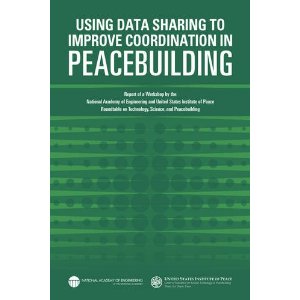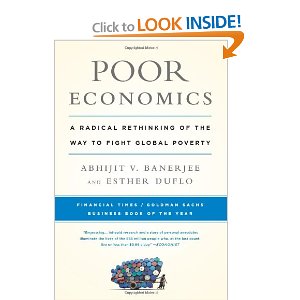
Andrew Robertson and Steve Olson (eds.)
4.0 out of 5 stars Excellent First Step, Four Disappointments, January 2, 2013
This is one of the more useful reports to come out of the US Institute of Peace and its collaborative effort with the National Academy of Engineering and I highly recommend it for either free reading online at the National Academies Press (individual) or for library purchase for the information, intelligence, diplomacy, civil-military, stabilization & reconstruction, and decision-support sections.
The goals are worthy but overly scientific & technical (the cultural part always comes first): to apply science and technology to the process of peacebuilding and stabilization; to promote systematic communications among organizations across political and other boundaries; and to apply science and technology to pressing conflict issues. La di dah. I just want to know if there is a dead donkey at the bottom of this particular well.
Secondary and equally ambitious goals that their current staffing model cannot support:
1. Adopt the agricultural extension services model to peacebuilding
2. Use data sharing to improve coordination in peacebuilding
3. Sense emerging conflicts (at least they realize the secret intelligence world does NOT do this)
4. Harness systems methods for delivery of peacebuilding services.
FOUR STRONG THEMES MAKE THIS BOOK VALUABLE:
1. Data sharing requires working across a technology-culture divide
2. Information sharing requires building and maintaining trust
3. Information sharing requires linking civilian-military policy discussions to technology
4. Collaboration software needs to be aligned with user needs.







